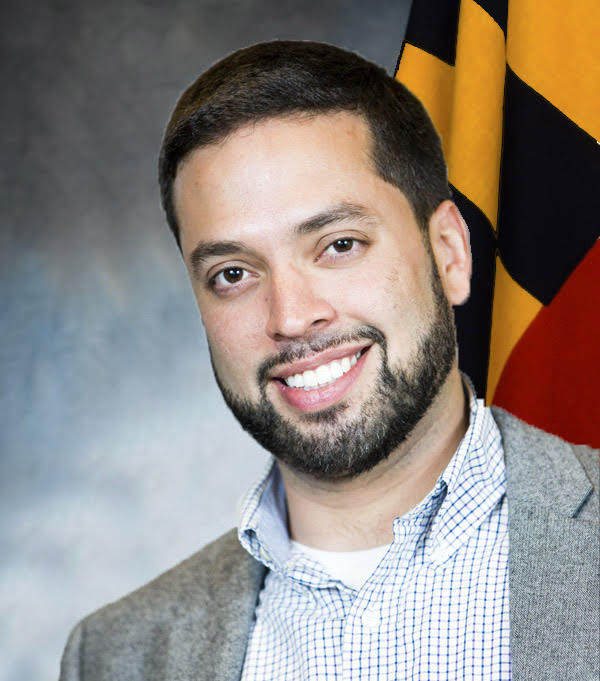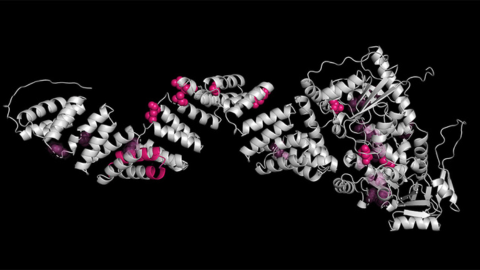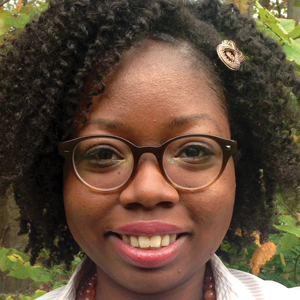From bench scientist to biotech business booster
Are you a natural networker? Interested in the biotechnology industry or economic development? For this week’s column, I interviewed Ernesto Chanona to learn about his career journey from National Cancer Institute immunologist to senior manager at the Maryland Department of Commerce.

Chanona started out as a biology major at Johns Hopkins University and then completed the combined M.S./B.A. program in cellular and molecular biology. “I really did pivot to the research lab because the passion was in the biological concepts. I graduated from Hopkins and taught high school biology for a year,” he said.
He then earned his Ph.D. in pharmacology at the University of North Carolina at Chapel Hill and did a three-year postdoctoral fellowship at the National Cancer Institute, where he focused on preclinical cancer immunotherapeutics.
Ultimately, he said, “laboratory work was not exactly where I wanted to be."
"I’ve always enjoyed writing and public speaking about science — discussing the data at large in the context of the field," he said.
A bureaucrat with a science background
Today, Chanona is senior manager in the Office of the BioHealth and Life Sciences at the Maryland Department of Commerce. He is the economic development lead for the biotechnology industry, and his work is two-fold:
- Internally: He does market analysis to understand what is missing and to help recruit companies to the state.
- Externally: He serves as a go-between for the state government and the private sector.
“I’m selling the state of Maryland as a place to come to do business," he said.
He continued: "Having a Ph.D. allows me to really get the buy-in from our scientists and entrepreneurs ... A Ph.D. gives us the trust as an economic developer who is a specialist in the biotech field…but more importantly, critical thinking.”
Making business connections
Chanona is on the road a lot.
“I spend a lot of time driving across the state between Baltimore City and Montgomery County, which is where we are, getting a tour of the company, getting to know people and what their business problems are," he said. "There’s a definite evening component to the job."
He also has to be on his toes.
"You are representing your government, the governor of Maryland and (meeting with) foreign government dignitaries. I went to the British embassy and met the ambassador of the U.K. to the United States and a bunch of other cool people,” he said.
In addition, he works with the U.S. Small Business Administration's Office of International Trade so companies can gain access to the market and expand globally.
“I lead a trade delegation in collaboration with my colleagues in international trade to Arab Health (a healthcare conference and trade show) in Dubai and Medica, which is in Germany every year…I work closely with our government counterparts across the world ... so that we can find activities that help the growth of our biotech sectors,” he said.
These trade business meetings involve “a tour of our assets, including some of our research facilities, some of our federal laboratories…some of our major companies and public–private partnerships. Or the converse happens. We take a delegation to a country that hosts, and we learn a little bit more about what their industry looks like,” he said.
Advice for scientists looking to transition into economic development
As a scientist, Chanona had project management, analytical and sales skills — all essential for economic development. So, the next step was meeting the right people. He did serious networking and was not afraid to put himself out there. He offered this advice:
Scope out what you need. Universities, research institutions and organizations have many resources available. As a postdoc, Chanona used the NCI Office of Workforce Planning and Development for mentoring, personal strength assessments and resources to prepare for his career pivot.
Look for trade association events in your state. When he did a search, he came across the Maryland Technology Council. (Next week, there is a virtual Maryland Life Sciences Bioinnovation Conference.)
Never stop networking because it leads to a domino effect of opportunities. Chanona emphasized the importance of networking well. He wanted to attend the Maryland Technology Council’s Lifetime Achievement Awards Gala, so he reached out to volunteer at the event. Even though they did not need any volunteers, they gave him a ticket. At the gala, he met the deputy secretary of commerce for the state of Maryland, who invited him to a technology-transfer summit . It was at the summit, hosted by the Department of Commerce, that Chanona learned there was an opening for a scientist with an immunology background.
Always come prepared. “I analyze my database of companies within our industry. I look to see our therapeutic and technological strengths, sectors that are growing, and the overall life cycle of the industry to better strategize the development of local supply chains," he said. "By understanding the obstacles that are slowing growth, we can program to help overcome those challenges. For example, to help companies do business with the NIH, we established the Maryland Innovation and Technology Series.”
Learn the art of negotiation. “April to May 2018, I had several interviews. By the end of May, I received a one line e-mail, saying 'What are your salary requirements?' I was able to add about $10,000 to my salary before starting there…about a 50% bump in income from the NIH to the Department of Commerce as a result of being able to negotiate salaries." He added, "We don't typically get a lot of negotiation training, and we just take whatever salary they give us as scientists.”
To learn more about economic development, check out the Office of the BioHealth and Life Sciences and Maryland Department of Commerce. Follow Chanona on Twitter.
Enjoy reading ASBMB Today?
Become a member to receive the print edition four times a year and the digital edition monthly.
Learn moreGet the latest from ASBMB Today
Enter your email address, and we’ll send you a weekly email with recent articles, interviews and more.
Latest in Careers
Careers highlights or most popular articles

Upcoming opportunities
Friendly reminder: May 12 is the early registration and oral abstract deadline for ASBMB's meeting on O-GlcNAcylation in health and disease.

Sketching, scribbling and scicomm
Graduate student Ari Paiz describes how her love of science and art blend to make her an effective science communicator.

Embrace your neurodivergence and flourish in college
This guide offers practical advice on setting yourself up for success — learn how to leverage campus resources, work with professors and embrace your strengths.

Upcoming opportunities
Apply for the ASBMB Interactive Mentoring Activities for Grantsmanship Enhancement grant writing workshop by April 15.

Quieting the static: Building inclusive STEM classrooms
Christin Monroe, an assistant professor of chemistry at Landmark College, offers practical tips to help educators make their classrooms more accessible to neurodivergent scientists.

Unraveling oncogenesis: What makes cancer tick?
Learn about the ASBMB 2025 symposium on oncogenic hubs: chromatin regulatory and transcriptional complexes in cancer.

